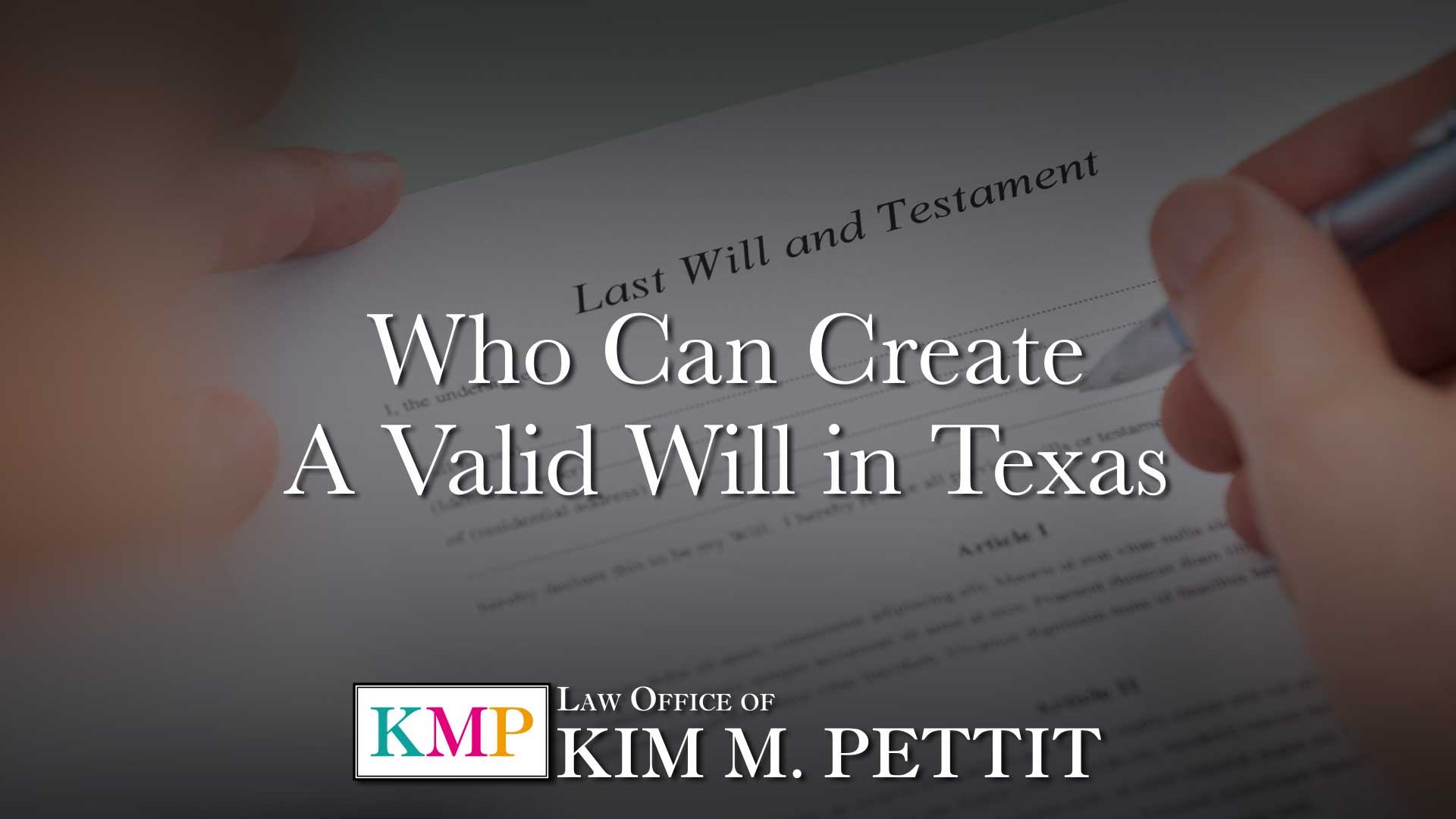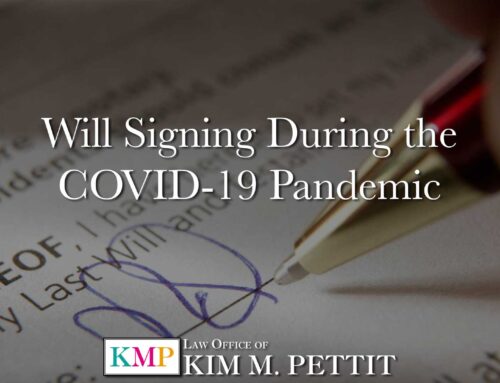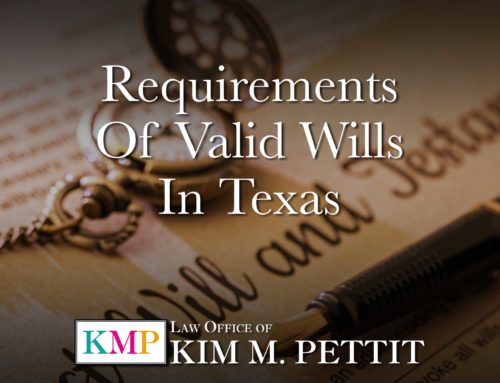Have you ever wondered just who can create a valid will in Texas? Is anyone who wants to write a last will and testament able to write it out, sign it, and declare it as legal and binding? Or are there certain standards and requirements that must be met? If you’ve wondered these things, you’re not alone.
In Texas, a person desiring to create a valid will needs three key requirements met. The testator, the person creating the will, must have legal capacity, testamentary capacity, and testamentary intent at the time he signs the will. If any of these requirements are not met when he signs the will, the will is considered invalid.
Legal Capacity
In Texas, a person has the legal capacity to create a will if, at the time the will is signed, he is (1) of sound mind, (2) at least 18 years of age, (3) is or has been married, or (4) is a member of the armed forces of the United States, a member of an auxiliary of the armed forces of the United States (such as Civil Air Patrol or U.S. Coast Guard Auxiliary), or a member of the United States Maritime Service.
Testamentary Capacity
A person has testamentary capacity if at the time he signs the will he has sufficient mental ability to:
- understand that he is making a will
- comprehend the effect of the will
- grasp the general nature and extent of his property
- know his next of kin and the natural objects of his bounty (relatives and loved ones)
- understand that he is disposing of his assets
- collect in his mind the elements of the business to be transacted
- hold those elements long enough to form a reasonable judgment about them
Testamentary Intent
Testamentary intent means that the person must know and intend that his property will be disposed of at the time of his death. The person can dispose of all or just a portion of his estate. However, it is a better practice to dispose of all the estate (real estate, personal property, and intangible interests), rather than a portion. The estate means all the property owned by or in which the person has an interest at the time of the person’s death. It is critical that the wording in the will accurately reflect the testator’s intention. Additionally, the person may also disinherit an heir so that the heir receives nothing from the person’s estate.
Proper and timely estate planning is important. Many people often consider creating a will just before leaving on a trip or entering a hospital for surgery. There are also times when an adult child desires to make a will for his or her mother and father, but the parent is under hospice care. Or perhaps a parent has Alzheimer’s disease or is heavily medicated to cope with pain.
Although a person may suffer from periods of incapacity, he can still sign a valid will when he is thinking clearly and rationally during a “lucid interval.” And it is best to have a will completed before any emergency occurs.
Please contact the Law Office of Kim M. Pettit at (210) 558-4572 or request a consultation below to get started on your will today.






